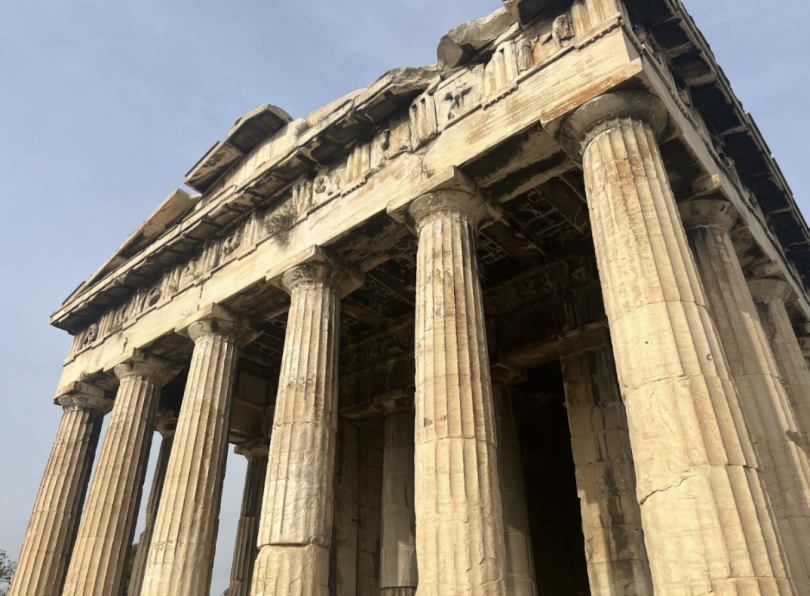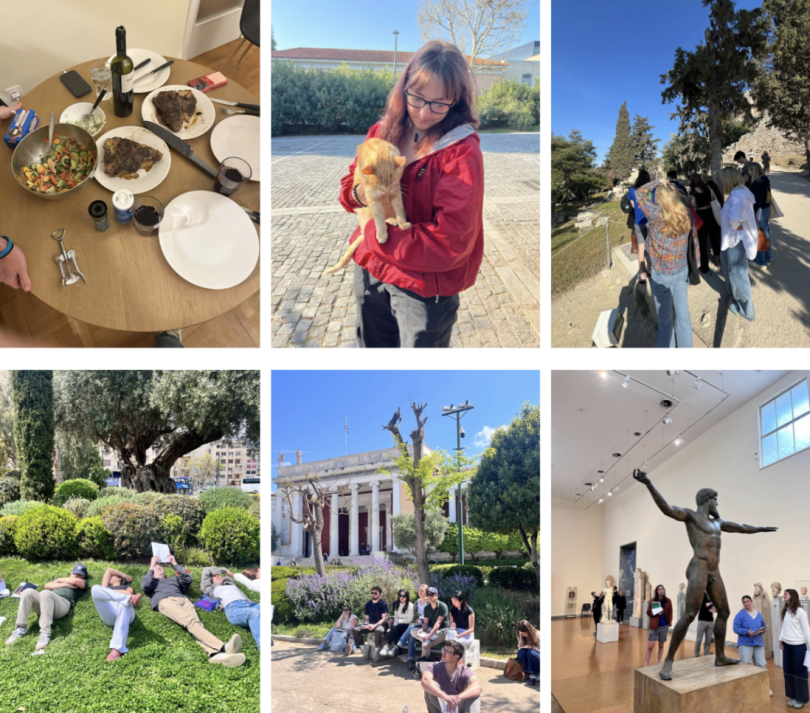
Dartmouth-Sponsored Travel on Study Abroad
One of the many things that makes Dartmouth unique is its robust study abroad programs, which students are encouraged to do up to three times. Dartmouth Foreign Study Programs (FSP) are led by a Dartmouth professor with around 20 students. Rather than only enrolling as a transient student at another institution, you have the opportunity to learn with fellow Dartmouth students from Dartmouth professors, who have the flexibility to teach classes at museums, archaeological sites, or even with live performances, like on the Music FSP.
Given the unique structure of Dartmouth's Foreign Study Programs, the quarter abroad has a lot of flexibility to explore the city, country, and even continent. On my Classics Greece FSP, I had the opportunity to travel around Athens, various cities in Greece, and even Italy as part of the curriculum! We are based in Athens for seven weeks and travel for another four weeks. In Athens, we are taking Topography of Athens as well as Myth and Religion, both taught by local professors at College Year Athens. While traveling, we take Classical Art and Archaeology with Dartmouth Professor Paul Christesen.

In Athens, over half of our two classes are taught at various sites, from the Parthenon to the National Archaeological Museum. Throughout the term, we travel for about a week at a time each to the Peloponnese in Greece, Sicily, the Cyclades in Greece, as well as the option to either do an archaeological dig at Despotiko, Greece or travel around Northern Greece.
While studying abroad typically sends students alone to their programs, I feel very supported by Dartmouth while on my FSP. We have Professor Christesen, Professor Daphne Martin (a visiting professor), a Director's Assistant (a Teaching Assistant and UGA, Undergraduate Advisor, rolled into one), and the entire staff at College Year Athens to help us with any academic questions or problems that arise during the trip.
All transportation to the FSP trips (including flights, ferries, buses, etc.), hotels, guided tours, and some meals are included in the tuition and housing costs of the trip, and financial aid also travels with students– students often get more aid abroad to cover miscellaneous expenses associated with travel.
Overall, this FSP has allowed me to explore the city of Athens as well as travel to places all across the Mediterranean that are relevant to my Classics studies. Many other FSPs run on a similar model, including the Earth Sciences FSP, Anthropology New Zealand FSP, and the Environmental Studies South Africa FSP. Dartmouth's FSPs are unique and allow students to get to know not only one city but also an entire region, maximizing their time away from Hanover!


















